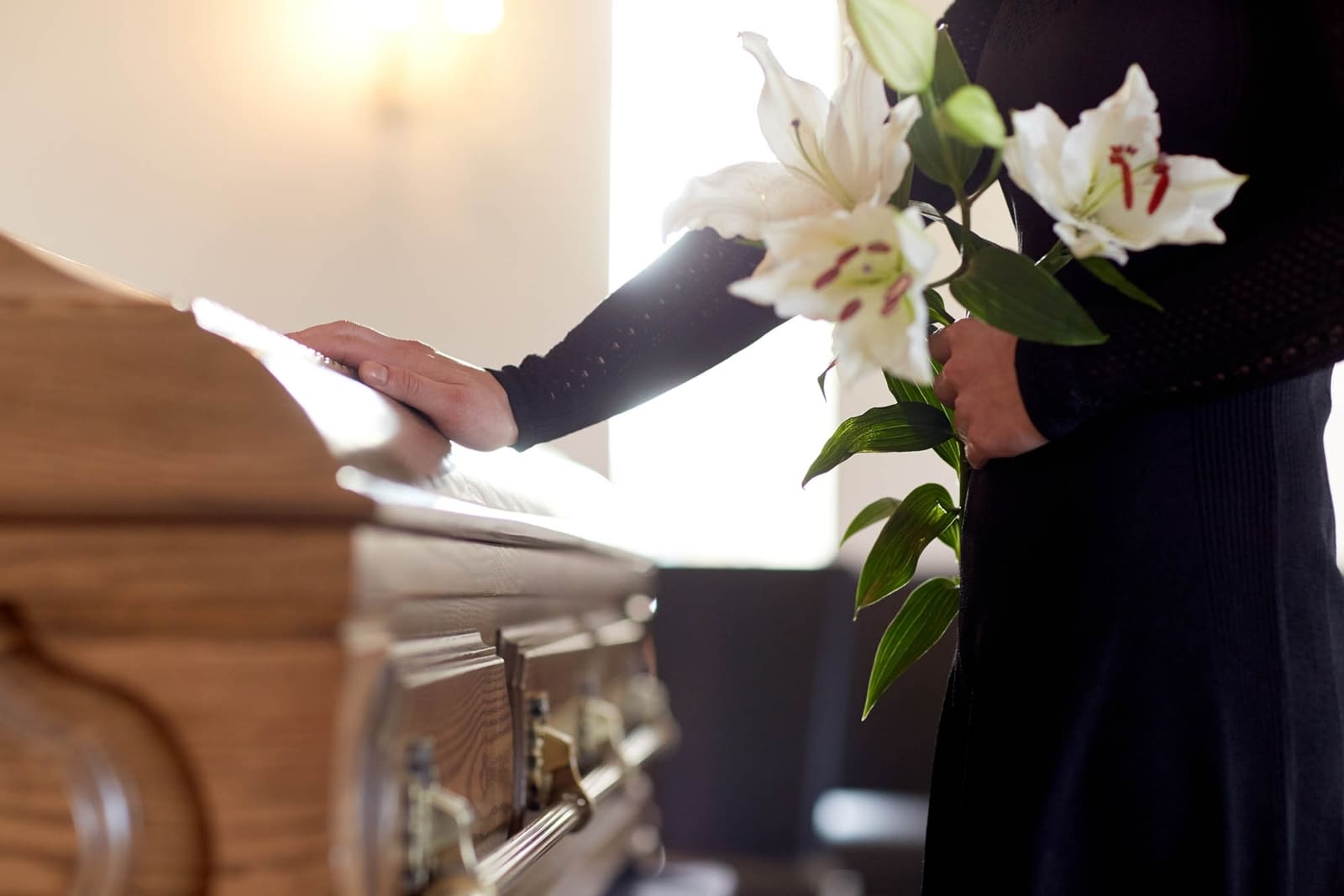Funeral Etiquette
IF YOU WILL BE ATTENDING A TRADITIONAL FUNERAL OR A MEMORIAL SERVICE, YOU MAY FIND THE FOLLOWING GENERAL GUIDELINES TO BE HELPFUL.
A funeral or memorial service provides an opportunity for the living to show respect for the deceased and pay tribute to their life. It provides a framework to freely and openly express our beliefs, feelings, and thoughts about the death of the loved one. It gives us permission to grieve our loss, share in solidarity, and gain strength from others who are experiencing the same loss.
Remember that, above all, it is your presence that means the most to the bereaved. Whether you offer a kind word, a comforting hug, or show your support in other ways, the simple act of being there to share their sorrow and mourn alongside them is the best gift you can offer the bereaved.
WHAT TO WEAR
The color black has long been associated with mourning and death in many cultures. In the past, wearing black clothing to a funeral was regarded as the only appropriate choice. Many people still choose to follow tradition and only wear black clothing to funerals. However, today’s society has seen a relaxing of the “rules” so that other clothing is now considered appropriate, as long as it is conservative in style and color.
For both men and women, a good general guideline is to wear clothing that would be suitable for attending a business meeting or job interview.
For women, a conservatively cut dress, a skirt suit or a pant suit, a blouse (with sleeves) or a sweater combined with a skirt of conservative length are all appropriate choices. Flat shoes or pumps in conservative colors may complete the outfit.
For men, appropriate clothing choices include a suit with a tie; pants and a collared, button-down shirt with a tie and a belt; and dress shoes or loafers.
WHAT NOT TO WEAR
For both men and women, avoid brightly colored, overly casual, or revealing clothing. Do not wear jeans, sneakers, flip flops, baseball caps, or athletic wear.
WHEN TO ARRIVE
When attending a funeral or a service, do your best to be on time. Try to enter the facility as quietly as possible. If there are no ushers present, remember that the first few rows of seats are usually for the immediate family and close friends. Acquaintances should appropriately seat themselves in the middle or towards the rear.
WHERE TO SIT
Regardless of whether the ceremony takes place inside or outside a building, the first few rows of seating are reserved for family only. The immediate family sits in the front row and extended family members sit in the rows behind. The remaining seating is available for all other attendees.
WHAT TO SAY
It is common to feel awkward or uncertain about what to say to a bereaved person in the days following their loss. You can demonstrate your love, attention, and support to a grieving person in a number of ways. While just your presence can be enough, still a kind word, a compassionate touch, or a loving hug can mean much to show the bereaved that you care about and support them.
The following expressions of sympathy can help to convey your compassion and concern for the bereaved. Depending on how close you were to the deceased person and the bereaved, some or all of the following expressions may be appropriate.
- I will miss (the deceased).
- (The deceased) was a wonderful person. (You may then want to share a memory, but you should keep it short if other people are waiting to speak to the bereaved person).
- I’m so sorry for your loss.
- You and your family are in my thoughts and prayers.
- This must be so hard for you.
- I love you.
The goal of expressing sympathy is to offer your compassion and concern for the bereaved. You can say how much you will miss the person who died or you can share a happy memory. The most important thing to communicate is that you care about the bereaved person and you are available as a source of support.
BRINGING CHILDREN
Parents should take into consideration the age of the child, his capability to understand what is happening, and the type of funeral service that will be held, and make a decision accordingly. If the parent believes the child is capable of handling the situation, then they may discuss the death itself and the meaning of the funeral ceremony in age-appropriate language. At the funeral, parents should be prepared to leave early, should the child react in a way not anticipated or become disruptive.
Patience and understanding from the parent is important. Before and after the funeral, the child should always be allowed to ask questions and to grieve if needed.






